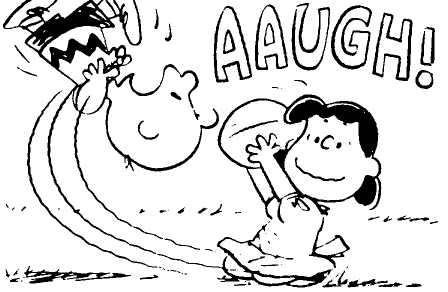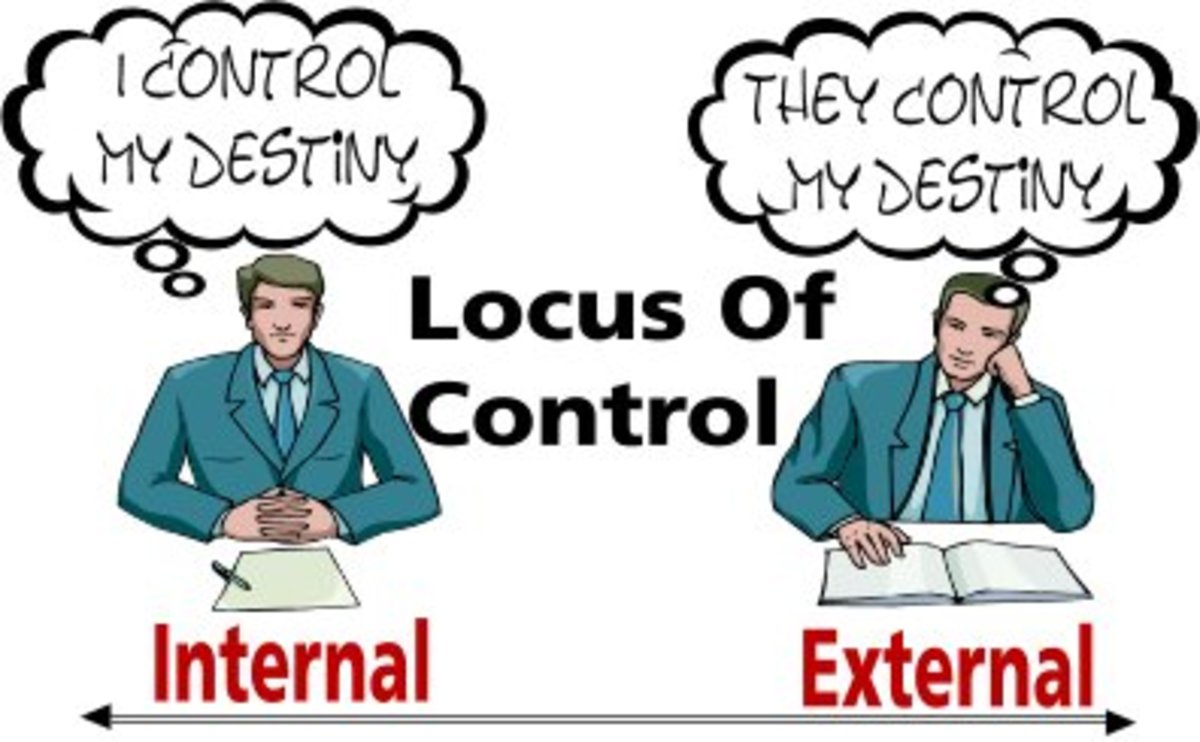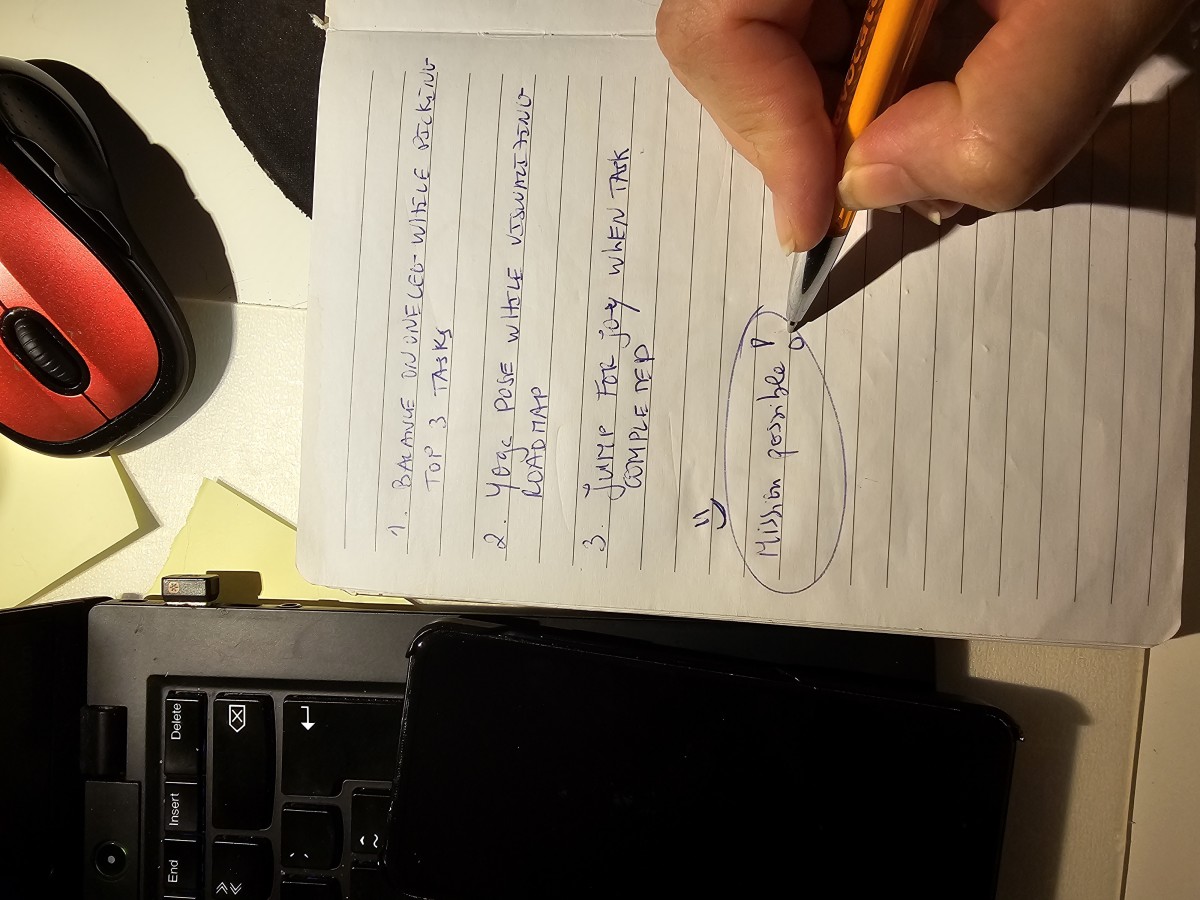- HubPages»
- Business and Employment»
- Business Management & Leadership»
- Life Coaching
Attributional bias

What makes us blame?
Where does bias come from? Why is it that people are often either conceited and self-serving or depressed and self-loathing? This all has to do with a concept called Attribution; or what people “chock stuff up” to. The reason they think something has happened the way it did. Attribution is a word conceptually similar to asking “why.” The main difference being that Attribution is the answer, and why is the question. The problem happens when people start to judge others differently than themselves; this is Attributional bias.
Attributional bias has to do with the way that people see events. There are basically two ways that people look at things. They tend to either look to internal causes, like hard work and trying hard; or they look to external causes, like luck and the actions of others. There are certain people who look all to internal cause “I didn’t try hard enough” and those who look all to external “it was fate.” However, most of us fall somewhere in between those two.
That is what Attributional bias is and there are basically two kinds that are commonly made. There is Fundamental attribution error; this is the tendency to always judge others faults as being internal, in other words, you assume that someone’s failure is inherently based on their lack of character. The other major bias is Self-serving bias; this is looking to internal reason when you succeed and external reason when you fail.
Self-serving bias is almost certainly the most rampant Attributional bias. People naturally tend to blame their mistakes on bad luck or the actions of another person. It’s easy to do; especially when you are having trouble understanding what you did wrong.
At my former workplace, a distribution center, we pick items to be shipped to stores. About 5% of what we pick is Audited to check for accuracy, if you make no errors in a week you get a $20 bonus, if you do have an error several weeks in a row you are punished. This is the place where I have seen more self-serving bias than anywhere else. I even have exhibited it on several occasions.
One summer I had a terrible time of it with this. Twice I went three weeks in a row with errors. For some reason I just kept getting errors. I found this near impossible to explain. I have always picked the same way and always gotten what I thought to be the right amount of items, and previously I had never had issues with picking errors. I found it impossible to believe that suddenly I was making such rampant errors. I blamed the put-away crew, I blamed the auditors, I blamed the first-shift picker. Everyone was blamed except for me when I messed up. When I had a good week, I always assumed it was my inherent ability to recognize what was needed and read my pick tickets carefully that allowed me to successfully make no errors. When I had a bad week (which I had several) I always tried to pin it on someone or something else. I was scared, scared of feeling incompetent, scared of getting written up or even suspended, so I made excuses.
Looking back on it, the simple truth of the matter is that both things were true. There were some weeks where I definitely made an error, I simply grabbed one too many or I got the wrong thing. Other weeks something was mis-labeled, once the auditor actually did screw up, once a baseball glove actually stuck to another baseball glove so I picked one too many… etc. The point is that both external and internal causes were to blame, and the reason that I’m a better employee now is because I watch out for both and try and recognize the real cause for the failure. I know when the situation is out of my control (the auditor makes a mistake, or someone mislabeled a product) and when it is in my control (I make, or don’t make, an error.) I think that management, however, would do well to recognize that when the auditor messes up, or something is mis-labeled that it was out of the picker’s control, and we really shouldn’t be punished for something beyond our control.
All in all, as an employee, employer, and generally speaking as a society, we would do well to properly assign blame when it needs to be assigned. Attributional bias is a major stumbling block to resolving problems. When we spend time blaming the wrong person we miss the point: which is that the problem needs to be corrected. That said; we also need to be humble and brave enough to take the blame when needed and make the proper changes to ourselves and our methods. A failure to recognize this fundamental truth in business and society is what causes things that need to change, to never change.






